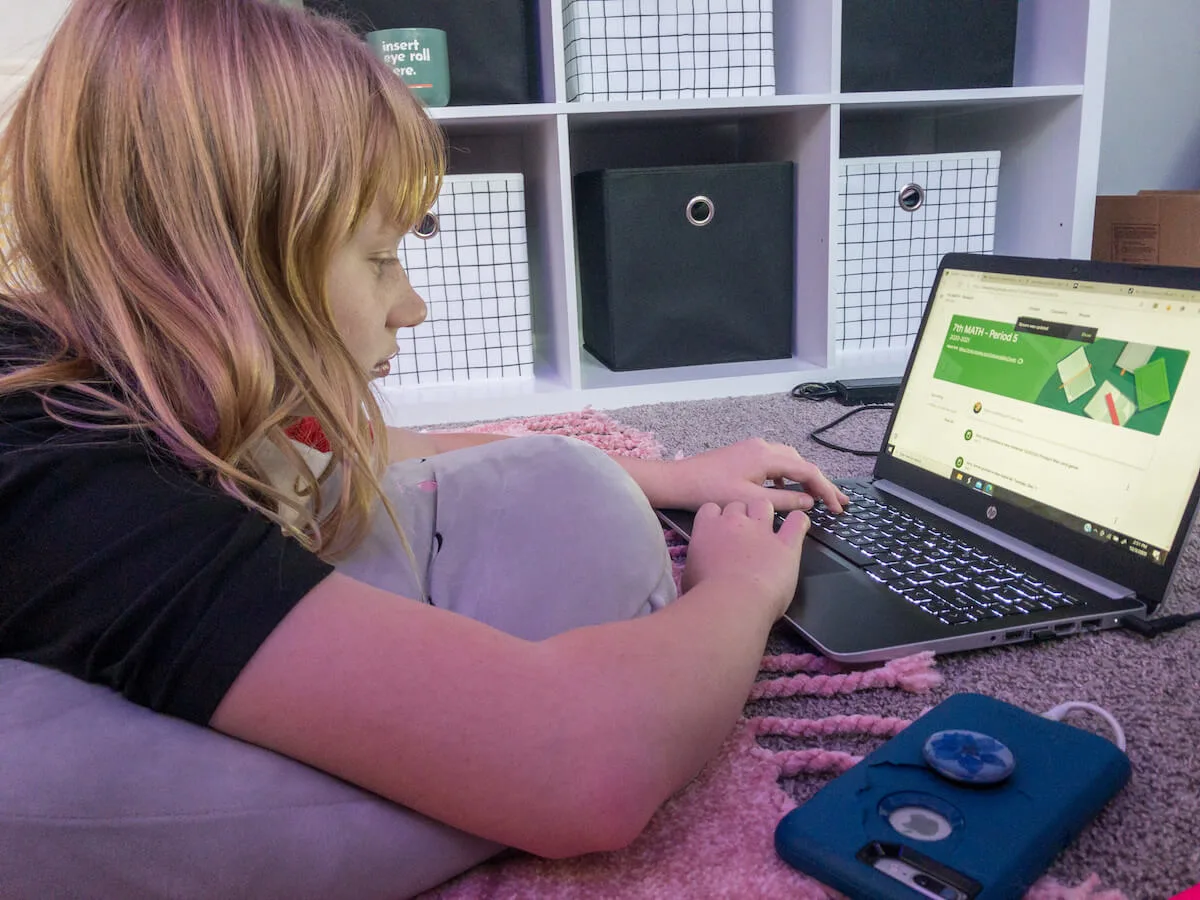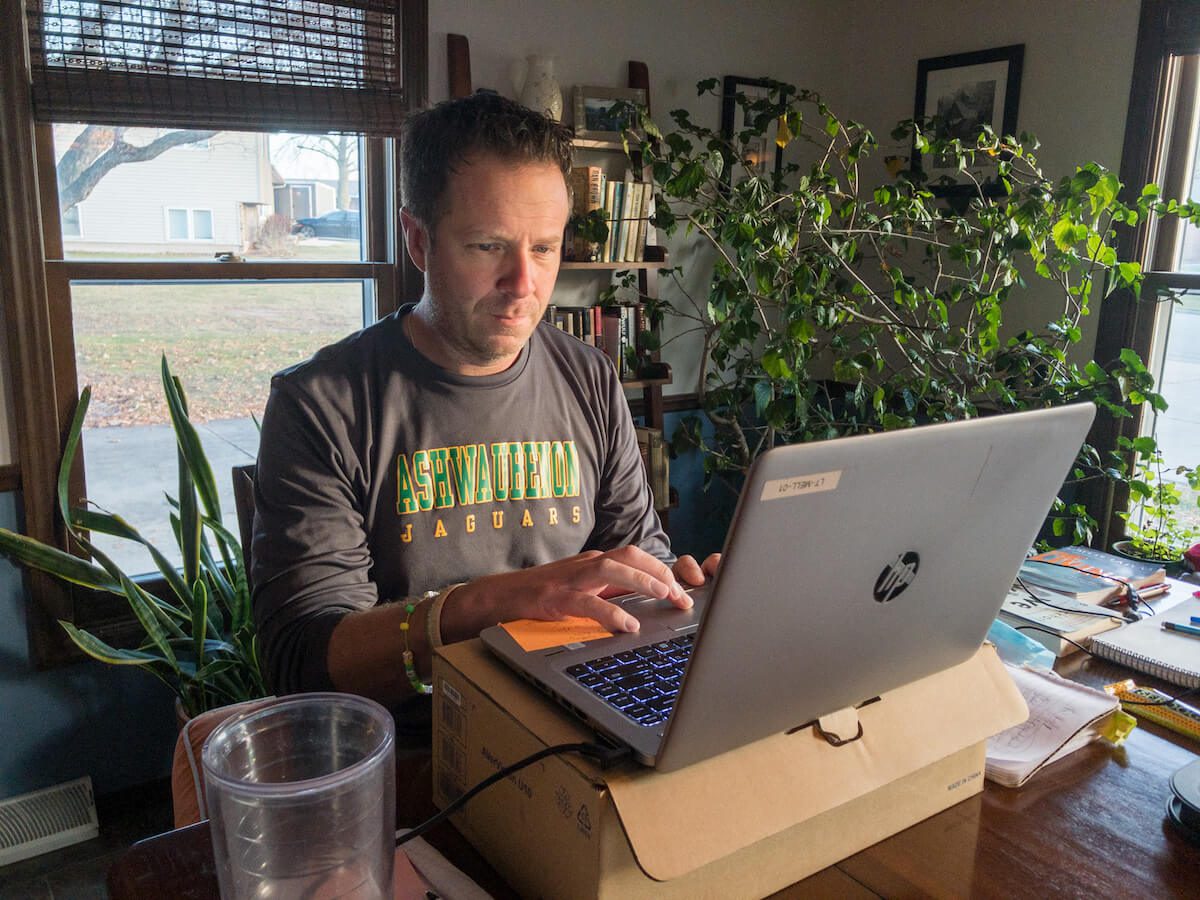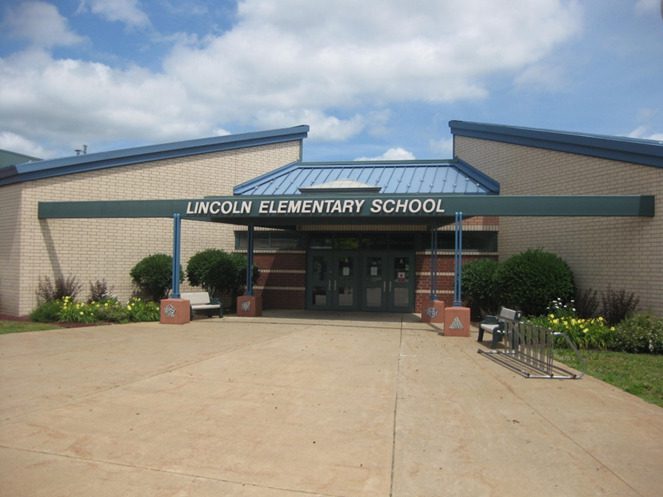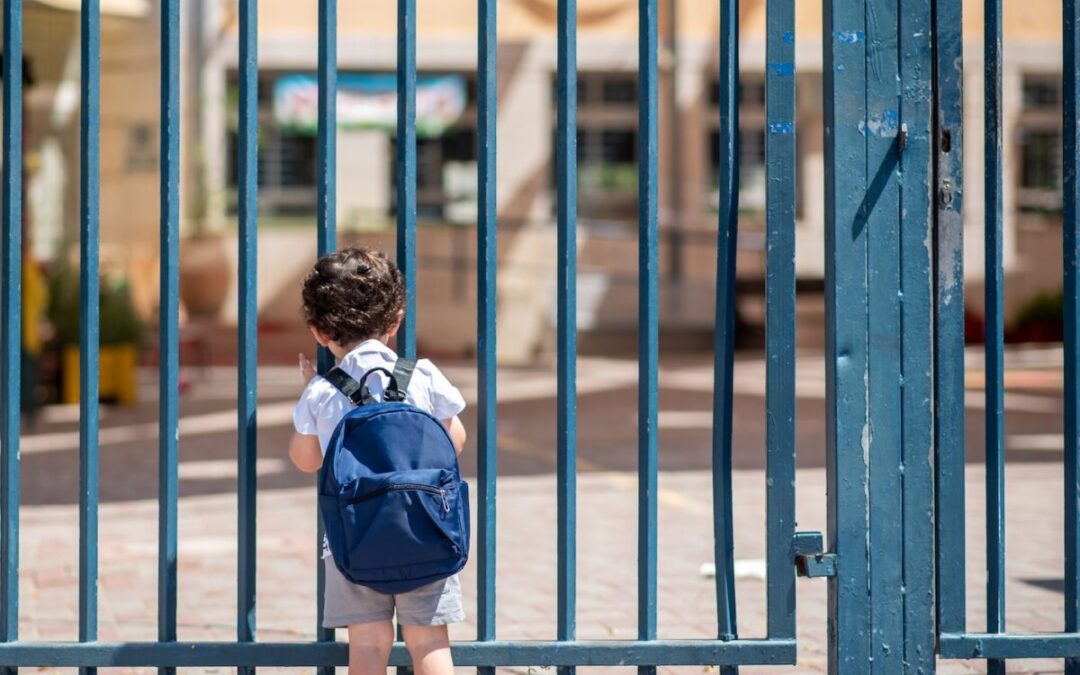
#image_title
They want legislators focused on safety, connectivity, and support instead of forcing potential harmful in-person classes.
Ron Martin, President of Wisconsin Educators Association Council, was optimistic when he heard that legislators and Gov. Tony Evers were going to work together on a COVID-19 response.
After all, there had been signs this fall that Wisconsin Republican leadership’s hard stance on COVID-19 denial was softening. Assembly Speaker Robin Vos (R-Rochester) and incoming Senate Majority Leader Devin LeMathieu (R-Oostburg) met with Evers to discuss a legislative response. Vos recently appeared in a public service announcement with US Rep. Mark Pocan to promote mask-wearing.
“I had a lot of hope,” Martin said. “I’m thinking, ‘Ok, we’re going to get something good out of this.’ But then when I read the legislation, I was so disappointed.”
Martin was not alone. While the proposal includes some provisions sought by Evers, it also includes several poison pills limiting the powers of local health departments and school districts to respond to COVID-19.
“Although there are some pieces that might be helpful, there are a number of items that I think are not necessarily helpful and, honestly, probably the best way to put it is: divisive,” said Eric Runez, superintendent of the DeForest Area School District.
If passed, the state would require local school boards to have a two-thirds supermajority vote in order to implement virtual learning, and they could only implement it for two weeks at a time. Teachers would be required to return to school buildings by Jan. 31, despite the dangers of a crowded workplace with full vaccination still many months away. School districts that spend more than half of the current school year learning virtually would be required to pay $371 per pupil to parents from already-stressed budgets.
One source of frustration, according Green Bay Area School District Superintendent Stephen Murley, is that this proposal was put together without even consulting educators and school districts about what’s going on and what they need. And instead of supporting school districts, it strips away their powers to respond to what’s happening in their communities.
“I find it really interesting that when we talk to legislators, and especially our Republican legislators that are pushing this current agenda, that they will tell you at every turn that they support local control,” said Murley. “When in reality, they support local control unless it differs from the direction they want things to go.”
Re-opening response
School officials across the state have had different approaches to balancing virtual versus in-person instruction.
The Green Bay Area School District started the year online and has gradually opened up in-person instruction to different groups of students. Going into next semester, they’re putting together plans for how to have students in programs that involve hands-on learning, such as automotive, art or agriculture classes, return to campus safely. And Murley said, their end goal is the same as the Legislature’s.
“We know the best place for them to learn is on campus, in the classroom with their teachers,” Murley said. “We’re really trying to balance two things: We’re trying to balance the educational and social-emotional needs of the kids on one hand versus their health and safety on the other hand. You can’t do both to the greatest extent possible.”
The Ashwaubenon School District split its student body into two groups that would alternate between in-person and virtual learning. Steve Mellberg, a 7th grade English teacher at Parkview Middle School, said the district did a great job preparing for classroom learning, but lunch was an issue.
“You get X amount of hundreds of kids in a building and they all have to have lunch around the same time and then they get together and take their masks off,” he said. “That becomes a challenge that can’t be overcome.”

In October when the numbers continued to climb, the school district went fully virtual. But on Wednesdays, students who have fallen behind or haven’t been as engaged can be brought into the classroom and brought up to speed. Despite the challenges, Mellberg said his class is almost where they would be during a normal school year. In fact, as long as there continues to be outbreaks of COVID-19, Mellberg argues virtual instruction is less disruptive.
“When kids do get sick or when they’re pulled because of contact tracing then there’s this break in the education,” he said. “The kids, they’re flexible and they’re learning to get really good at remote learning, too. So they’re adapting and they’re still learning.”
In order to get children back in the classroom, the proposal from Assembly Republicans offers no carrots and a great big stick. Murley said that one could look at the fine on school districts for virtual learning as a way to provide financial support for families that are struggling. But he doesn’t think that support should be, “taken out of the pockets of school districts.”
“Our costs have not gone down, they have gone up,” Murley said. “We’re already facing some pretty significant financial challenges and when the legislature proposes to come in and take upwards of $10 million away from the school district, that winds up being a pretty significant burden for us to bear.”
Runez said that if legislators want all schools to reopen for every student, they need to prioritize schools. Instead, the proposal put forward by the Assembly prioritizes everybody, which, “doesn’t align with the definition of priorities.”
“Where you see schools continue to be open and remain open–in countries in Europe for example–the government has put a priority on maintaining schools and opening schools and that, good or bad, has come at the cost of other sectors of their country,” Runez said. “If schools are the priority, then other segments of our community will have to make that sacrifice of being closed or having other restrictions.”
Mellberg put it a little more bluntly:
“The bottom line is if we want kids back in school, we need to close the bars and restaurants,” he said.
“And at the state and at the federal level we need to find ways to fund those businesses so that they don’t lose their livelihoods.”
Misguided efforts
Two of the measures intended to help school districts are not well thought-out and don’t address the root of the issue, Runez said.
For example, there is a likely well-intended provision that would allow retired teachers to return to classrooms without being penalized. But Runez said his district has seen their pool of applicants and substitutes grow more and more shallow over the years and this year, which includes a number of retirees, has gotten even worse.
“A number of them at the beginning of the school year have indicated during this pandemic they just can’t and are unwilling—and rightfully so—to risk their own health and well-being,” Runez said. “To try to find a band-aid for that during a pandemic is not necessarily going to be a quick and easy solution.”
Another provision that would have made grants available for school to purchase technology for virtual learning also missed the mark. Runez said that while he appreciated the gesture, the larger issue he’s hearing from school districts across the state, including his own, is internet connectivity, not devices.
“I would more appreciate our legislature putting their time and energy towards making internet accessibility more of a right than a luxury,” Runez said. “I think back to the 30’s when electricity, that became a push to get that to every rural area; that same mentality needs to be taken up by our legislators when it comes to internet accessibility.”
Beyond the educational components, Runez was concerned about overall move away from local control and putting the legislature in charge of so many entities, including the vaccine distribution.
“It’s December and the legislators took how long to get to this point?” Runez said. “For them to be able to debate and decide how vaccines get distributed, that to me seems extremely inefficient and impractical.”
But the biggest thing schools need from everyone, according to Mellberg: patience.
“The parents who are really loudly screaming for us to get back in-person, I think they have every right to feel that way but I don’t think they have the full picture,” Mellberg said. “I don’t think that they understand that every teacher that I know that’s working remotely is working harder than they’ve ever worked. I can say personally that I am and it’s worth it if we’re getting through this safely and still continue to reach these kids.”

‘A stunning public rebuke’: When voters had the choice, they rejected private school vouchers
On Election Day, voters in Colorado, Kentucky, and Nebraska squarely rejected private school choice ballot measures, demonstrating how much voters...

Wisconsin voters pass school district’s referendum for childcare center
There will be a new childcare center in Jackson County, thanks to voters and a rural school district. In the Lincoln School District - which is...

This rural WI school district has a creative idea to help the childcare crisis and school funding issues
But they’ll need ‘yes’ votes on Nov. 5 to make it work. When the dust settles on the Nov. 5 election, Wisconsin voters will have decided in nearly...

What a vote for a Republican legislator means for your public schools
Bills that attack public education in Wisconsin are in line with GOP efforts to make taxpayers support two parallel school systems, censor...




